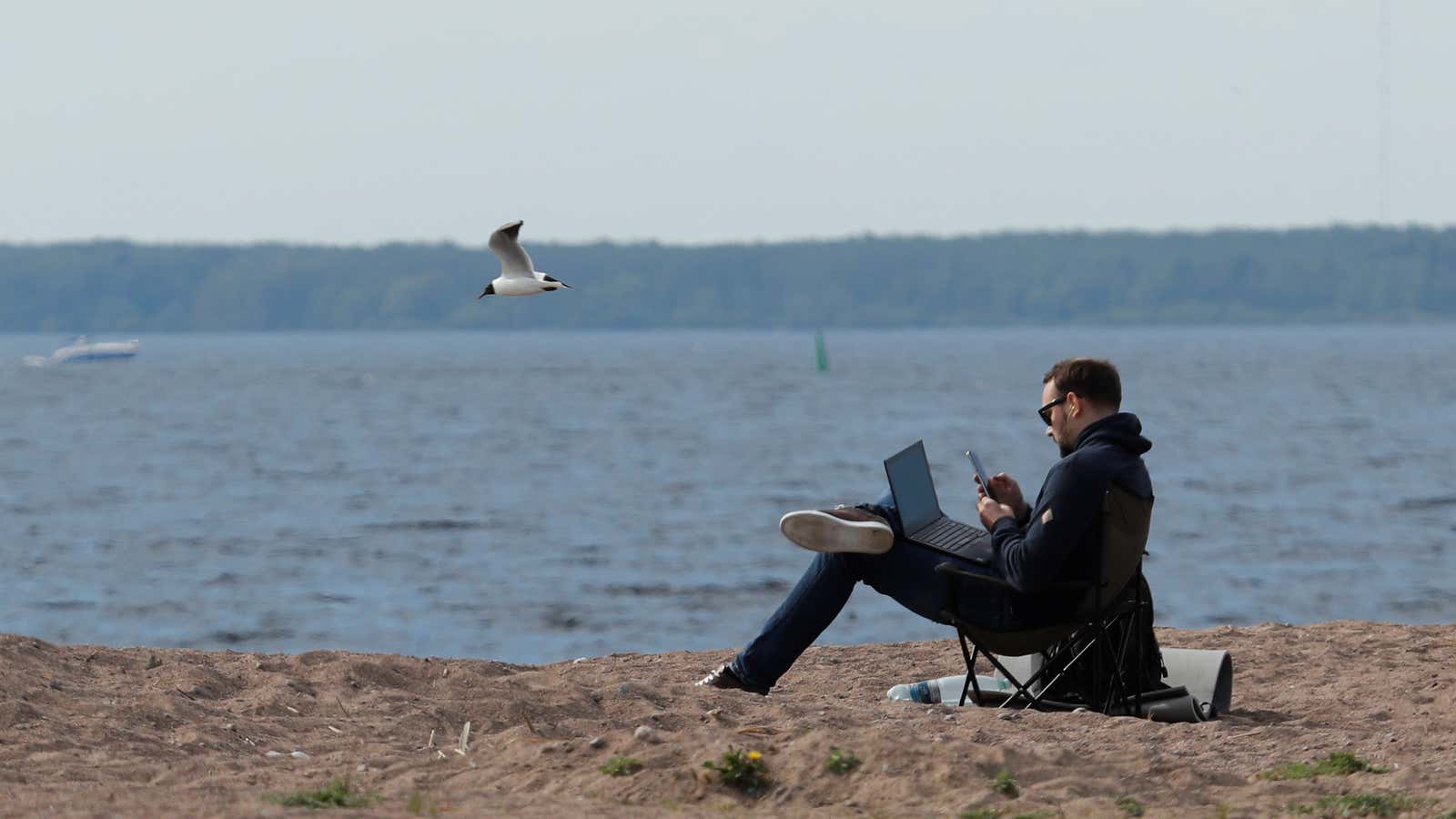If you are now working from home for the foreseeable future as a result of the coronavirus pandemic, you might be starting to notice things about your home, and neighborhood, that weren’t evident when you spent much of your time at the office.
Perhaps you have a neighbor with a dog who won’t stop barking when packages are delivered (that neighbor is me). Another neighbor might have decided to do extensive work on their apartment, or roof (the home above me, and the house next door). Or you might be facing the prospect of many more months of lockdown with your family in a space that is not ideal for 24-hour living (again, me). So, is now a good time to start looking for greener pastures?
This question is on a lot of people’s minds, whether the move entails looking for an apartment with a balcony for working outside on sunny days, pondering a move to the suburbs, or even making bigger geographical strides across states or countries. In the US, preliminary moving data are hinting at higher interest in more residential parts of cities and in suburban areas—a trend that was picking up before the pandemic. In the UK, Londoners looking to work from more bucolic countryside settings have resulted in a summer of record-breaking home sales (a pause in the tax on home sales has helped). And some countries are even advertising their pristine settings to draw remote workers. A “Work from Bermuda” certificate, for example, offers visitors the chance to “work and study remotely from the island in a stunning and worry-free environment.”
It’s also worth noting that some people don’t have much of a choice when it comes to relocating. A recent Pew Research Center survey found that millions of Americans were forced to move as a result of job losses and safety issues related to the pandemic.
Susan Shortland, an associate professor of human resources management at the University of Westminster in London, is an expert in global teams and team relocation. She encourages people to think beyond a move as a short-term reaction to the pandemic, so that they can imagine what their new location will mean for them if, or when, things go back to some degree of normal.
“You probably need to be sure that is the life that you really want. It might look very attractive in the current climate, but is it going to look so attractive in a few years time?” she says. For example, how comfortable would you feel if your office reopens and your colleagues start having socially distanced lunches again, while you’re working from a far-off farm? And if you’re considering moving to a new place where you don’t know anyone, would you be okay with being isolated during subsequent lockdowns if the pandemic gets worse before it gets better?
Regardless of whether you move, Shortland suggests taking a page out of teams that work globally by developing cultural competencies—that is, making an effort to better understand the contexts and working styles of your colleagues, whether they’re working from home in the same city as you, or thousands of miles away. This helps you overcome the lack of face-to-face interaction, and the physical cues of body language, that help in-person teams. “You might think, well, if you’re working remotely, do you actually need that? But in fact it’s probably more important, because you’ve lost that personal connection,” she says.
Because connecting with people is so much harder right now, it’s also worth considering that where you live is not just about your ability to do your current job, but also the connections you need to get your next one. That might not seem to matter as much now that many of us are working remotely, but when offices reopen and networking opportunities start up again, being able to make in-person connections will be important.
For my own part, as pandemic-related restrictions in the UK eased a few months ago, my husband and I turned to real estate listings to hunt for a place that would help us navigate the impending winter and another lockdown. Shortly after seeing the first space we saw—which was double the size of our current apartment, but for the same price—we rushed to put down a deposit.
But after we made a few follow-up visits, we realized we’d failed to think more strategically, as Shortland suggests, and hadn’t accounted for our lack of knowledge about the neighborhood, including its ambient noise levels. We decided to stay put for now. In our rush to find a short-term fix for feeling cramped, we would have just swapped one problem for another.
